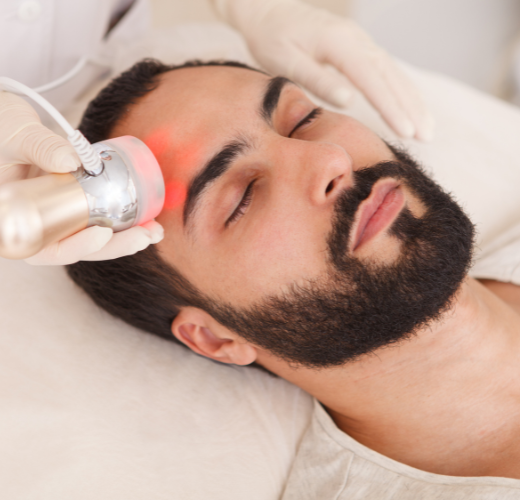What is cortisol, and how does it affect your skin?

Our bodies are driven by more than 50 different hormones, and estrogen, testosterone and progesterone are just a few names you may know. Hormones control or regulate many biological processes throughout the body, but that doesn’t always mean they always have positive effects. Case in point: Cortisol.
What is cortisol?
Our bodies produce cortisol as a natural response to stress, and this hormone also plays a role in immune response as well as how we use the fats, proteins and carbohydrates we eat. Yet despite these essential biological processes, cortisol causes inflammation throughout the body. In terms of the skin, inflammation compromises the skin’s natural defense mechanisms, promotes the breakdown of collagen and elastin, and impairs the skin’s barrier. Increased cortisol levels may contribute to increased sebum (oil) production and acne as well.
What prompts cortisol production?
We all experience stressful moments throughout the day, whether at home, work or school. Our bodies’ initial response is to produce “fight or flight” hormones like adrenaline, and the release of cortisol can follow to help keep us on “high alert.” In these instances, cortisol also raises blood sugar levels to provide the body with easily accessible energy. There’s no doubt cortisol is useful when we are in a threatening situation, but chronic, ongoing stress and the cortisol associated with can have negative effects on virtually every organ system in the body. And it’s important to know that the body perceives a lack of sleep as a form of stress that can lead to elevated cortisol levels.
What can you do?
Keeping cortisol in check can be as easy as living a healthy lifestyle. Limiting stress and finding ways to manage it is number-one, and prioritizing quality sleep is a close second. Regular exercise can help reduce stress and improve sleep, in turn reducing cortisol levels. Meditation and deep-breathing exercises are beneficial, as are healthy relationships, laughing and partaking in activities that you find enjoyable.
Cortisol and the skin
Cortisol does more than just accelerate the appearance of visible signs of aging and contribute to acne. Because of its compromising effect on the skin’s barrier, too much cortisol may exacerbate skin conditions such as sensitivity, eczema, psoriasis and rosacea.
Sure, stopping to take a few deep breaths during times of stress can help diffuse the situation—but minimizing the effects that cortisol can have on the skin and body as a whole is best achieved with an ongoing mindful, healthy lifestyle.


